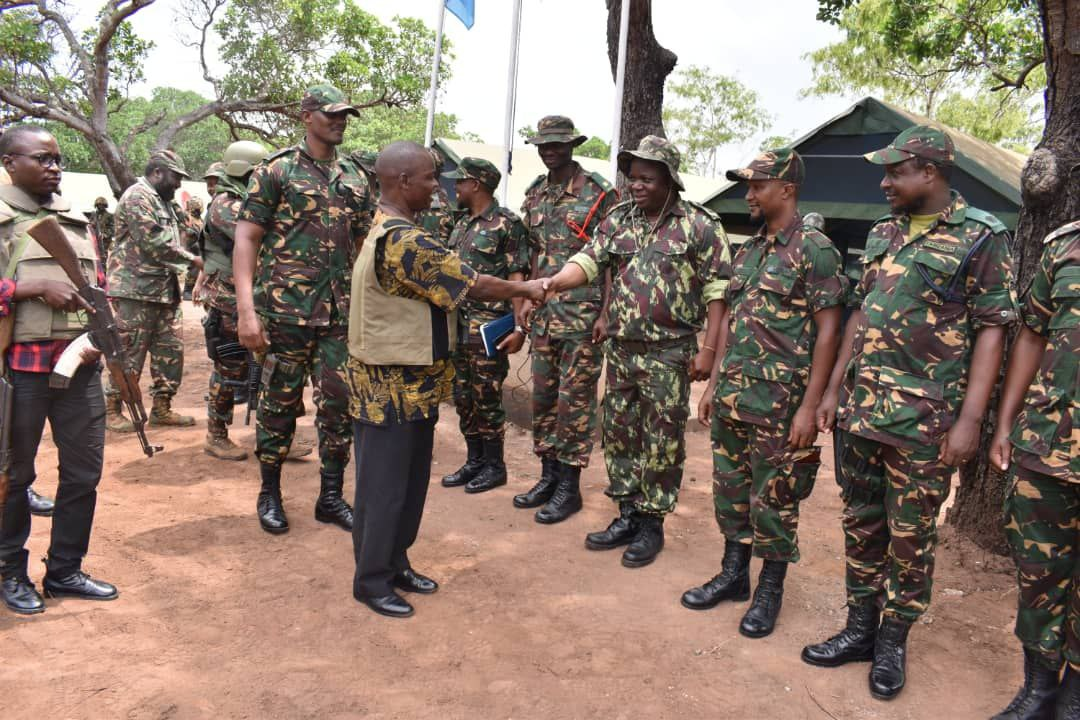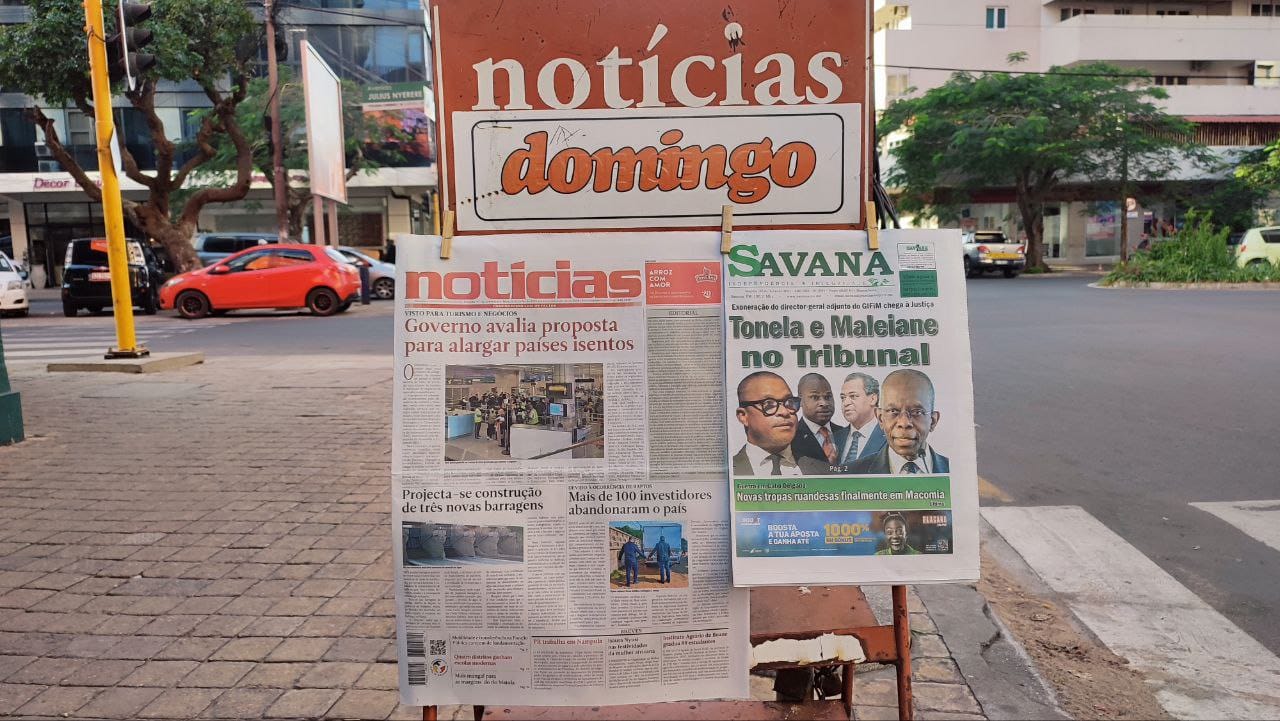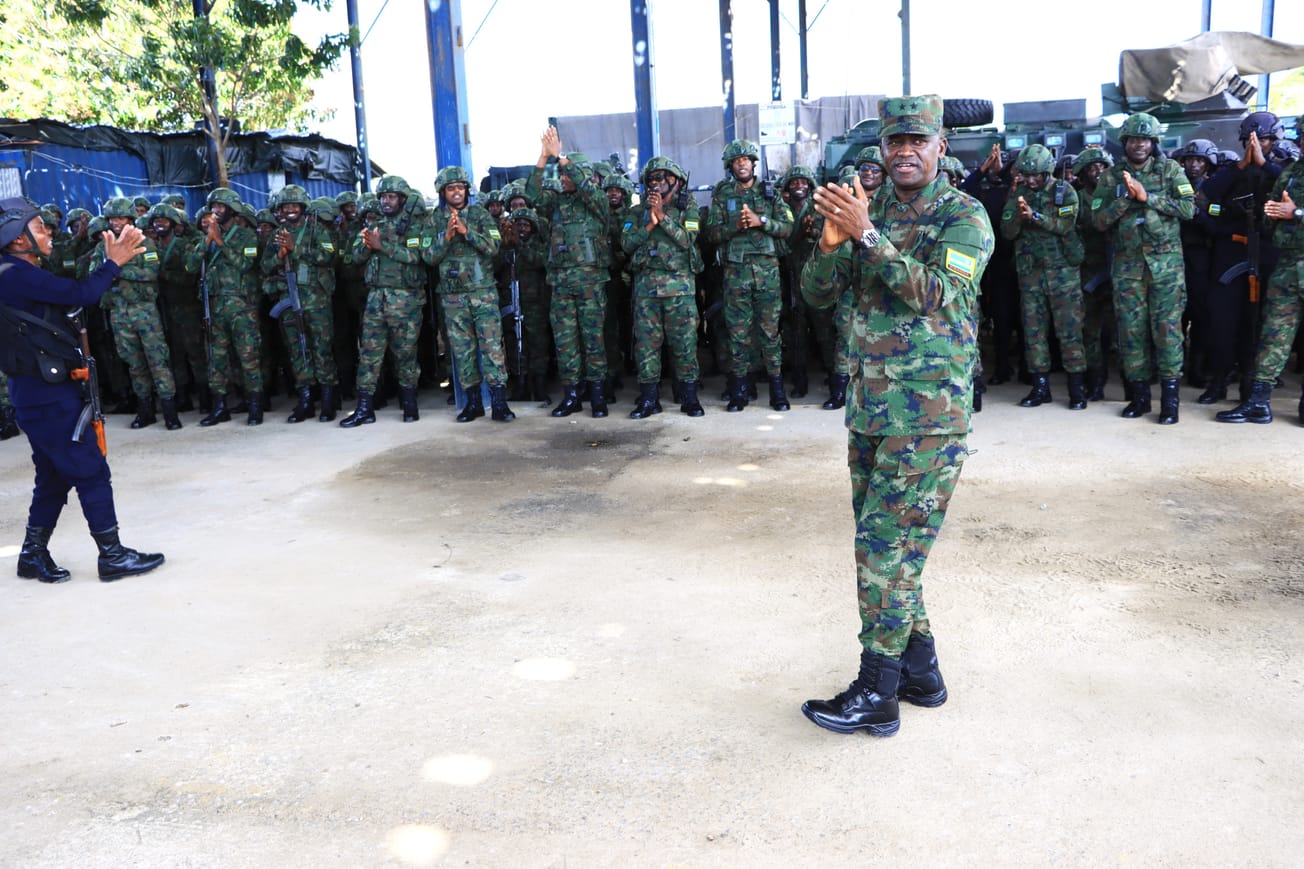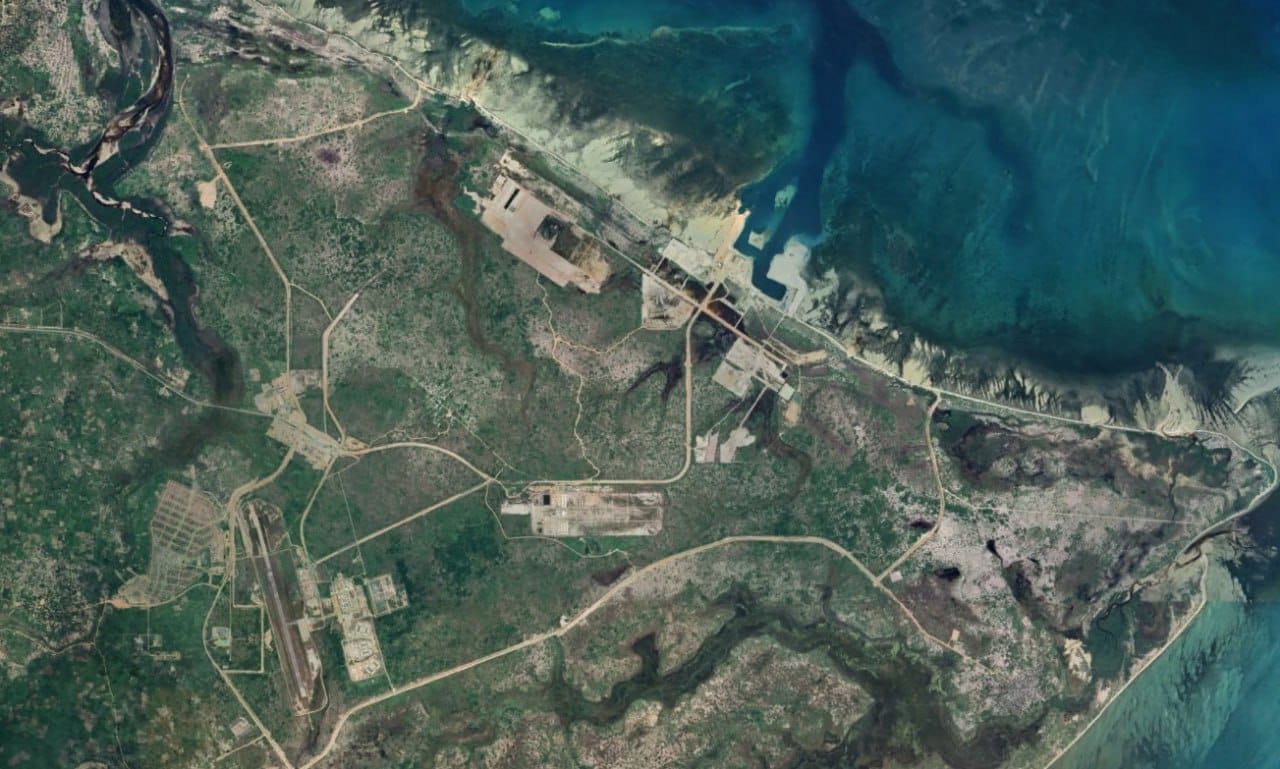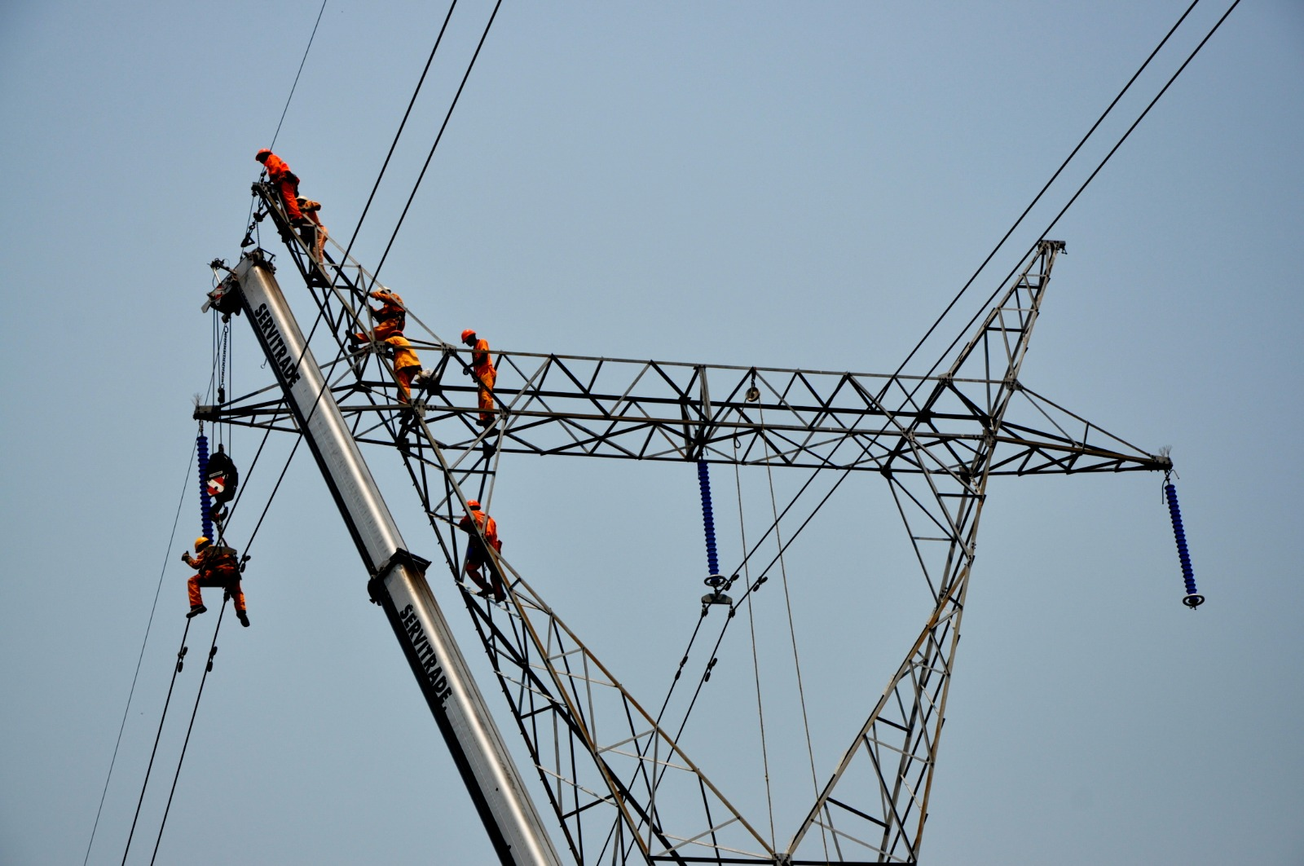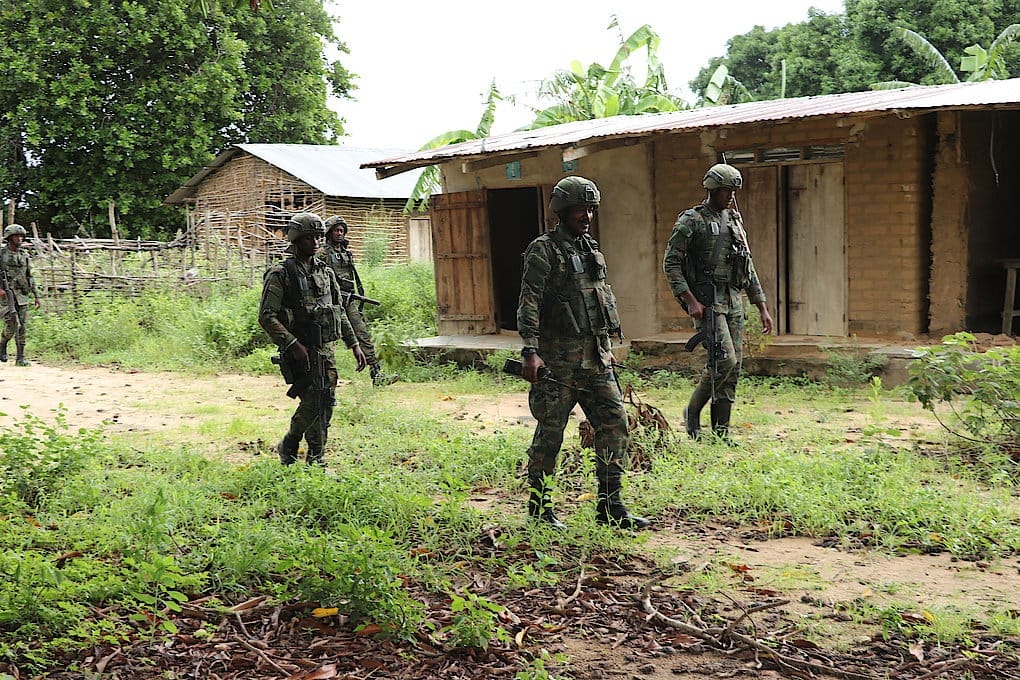Cabo Delgado is seeing a reconfiguration of state security forces that will impact Nangade district in particular. The Tanzania People’s Defence Force (TPDF) bilateral deployment in Nangade is to reduce numbers in November, with a view to an ultimate withdrawal. In December, SAMIM forces are to reduce numbers with a view to withdrawing in July next year. Given ISM’s previous strength in the district and its role as a bridge to support networks in East Africa and the Democratic Republic of Congo, ISM’s response to these changes in the district may be a bellwether for stability in the wider province.
This article was first published on 20 November 2023 as part of the Cabo Ligado Monthly: October 2023
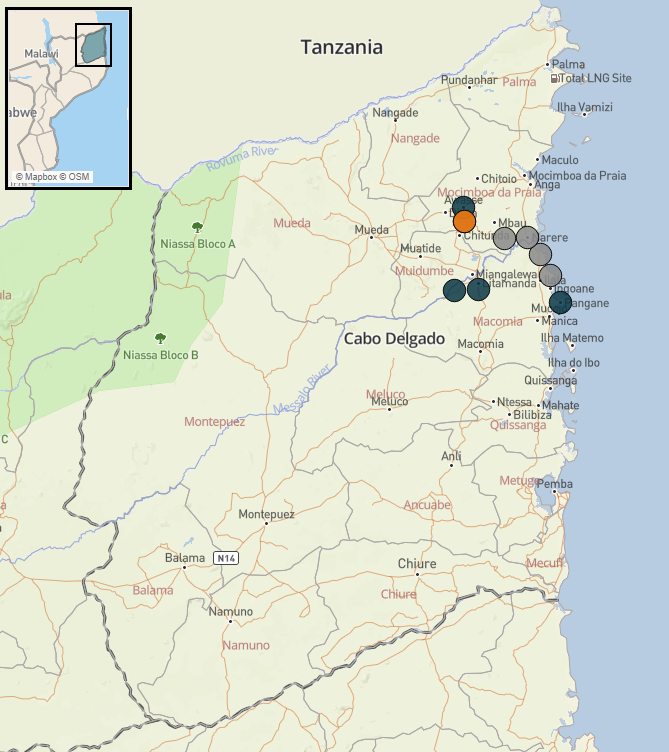
The intervention by state forces and their international partners has been successful in Nangade district. In the first 10 months of the year, ACLED records just seven political violence events in Nangade, of which just four have involved ISM. None of these events occurred in October. Getting to that point was the result of combined operations of SAMIM, Mozambique’s Defence and Security Forces (FDS), and the bilateral TPDF deployment at Mandimba in the northwest of the district in the final quarter of 2022. In neighbouring Palma, only one such event has been recorded in that time. The district has been effectively controlled by RSF since they first intervened in July 2021.
However, there are indications that the security environment is not yet settled. The first indication of lingering concerns is the behaviour of internally displaced people (IDPs) in centres in Nangade district headquarters and in the south of the district, most of whom are from the district. According to an assessment carried out in September 2023, only “a few” IDPs have returned to their homes for some days to clear land and farm, but fear remaining “due to the fear of security and safety noting the regular movements of NSAGs [non-state armed groups] in the rural areas.” According to a humanitarian source, this remains an issue in the district. Yet confirmed movements by ISM are rare. This situation is in contrast to districts such as Macomia or Mocímboa da Praia, where sightings are not unusual and news of them travels fast.
The second indication comes from unconfirmed reports of people smuggling across the border with Tanzania, which has been the favoured route connecting the insurgency to Tanzania, Burundi, and the Democratic Republic of Congo. In October, ACLED received a report of the arrest of up to 30 Burundians in Chacamba Boda village in Nangade district. The village is just eight kilometres from the border with Tanzania. Around the same time, a voice note appeared on social media telling of the arrest of an individual in Mueda for people smuggling. The speaker, a motorcycle taxi driver, spoke of a network taking people from DRC and Burundi “to the bush.” Again, the arrest could not be confirmed.
People smuggling is a well-established practice in East Africa’s borderlands, dominated by motorcycle riders, who can charge migrants hundreds of dollars to cross borders undetected, usually hoping to reach South Africa. According to a source in the province, the business was booming in the years before the conflict, with demand from migrants from Somalia, Kenya, Uganda, DRC, and Burundi in East Africa, as well as from migrants from Bangladesh and Pakistan. As elsewhere, this also facilitated the movement of recruits from across the region to fight in Cabo Delgado.
During the month, Mozambique’s National Migration Service (SENAMI) spoke of increasing cross-border traffic recorded by the seven operational SENAMI offices in Cabo Delgado. Returning to the pre-conflict migration pattern would mean a return to a considerable proportion of cross-border traffic not being monitored, allowing for easier access for the insurgency to support networks in Tanzania, Burundi, and DRC.
The planned withdrawal of SAMIM and the parallel TPDF deployment would see counter-insurgency operations in the hands of the different branches of the FDS and the Local Force. The former has not performed well for the duration of the conflict and often has a poor relationship with communities. Of the seven political violence events recorded in the district this year, three have been incidents of FDS targeting civilians. On the other hand, the Local Force is now well-established in the district. According to a local source, it is active in all villages and has a commander based in the district headquarters. Its local knowledge, however, does not fully compensate for its basic equipment. Nangade’s IDPs genuinely fear the conflict returning. Whether the FDS and the Local Force can prevent that on their own will become apparent next year.

